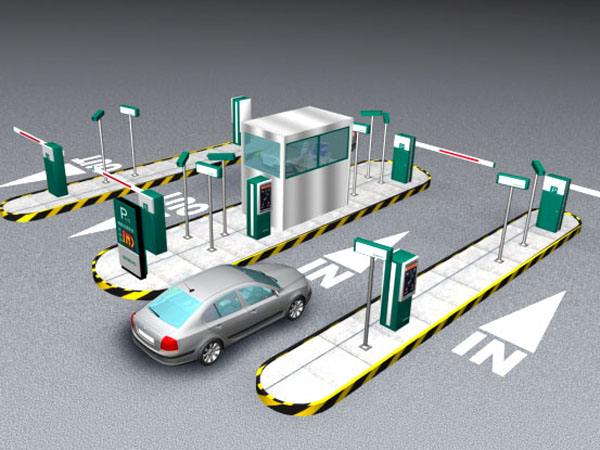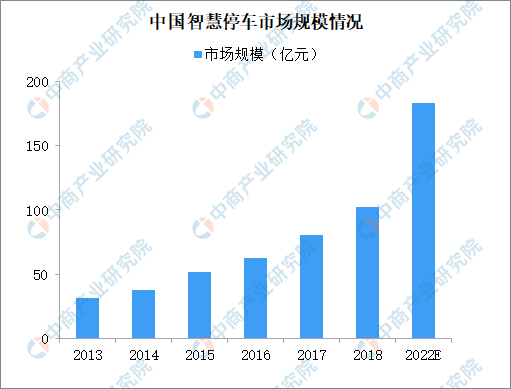With the rapid development of my country’s social economy, the popularity of private cars has gradually increased. Especially for families with children, cars are very convenient as a means of transportation, but parking spaces are currently in short supply in many cities. In addition, the prosperity of the sharing economy and the rise of the car rental market will bring new challenges to the parking problem. Especially after “smart transportation” was included in the “Thirteenth Five-Year Plan” transportation key plan, local governments have increased their investment in urban transportation. With the formation of multiple One Belt and One Road plans, the construction of intelligent transportation is gradually getting better.
The advancement of science and technology, the contradiction between the gap between parking supply and demand, and the relatively sufficient demand for intelligent transformation in the parking field reflect the future orientation of “smart cities”. It is reported that many developed countries have realized the integration of information technology with parking and traffic management, using information technology to integrate functions such as parking guidance, parking space management, electronic charging and parking space reservation. In short, smart parking is the general trend.


On May 21, the State Council issued the “Implementation Plan for Deepening the Reform of the Toll Road System and Abolition of Provincial Boundary Toll Stations on Highways”, which requires that the reform of the toll road system be deepened, the efficiency of the comprehensive transportation network be improved, and logistics costs be reduced. Boundary toll stations enable fast toll collection without stopping. The new policy will undoubtedly benefit the smart parking industry.
Smart parking refers to the comprehensive application of wireless communication technology, mobile terminal technology, GPS positioning technology, GIS technology, etc. to the collection, management, inquiry, reservation and navigation services of urban parking spaces. It realizes real-time updating, inquiry and reservation of parking space resources. Integrated with navigation services to optimize parking space resource utilization, parking lot profits and car owner parking services.
According to the “Smart Parking Industry Market Prospects and Investment Strategic Planning Analysis Report” released by the China Business Industry Research Institute, the smart parking market size exceeded 10 billion yuan in 2018, and the market size of my country’s smart parking system will exceed 18 billion yuan in 2022. China’s smart parking lot market The system maintains rapid development.


Data source: China Business Industry Research Institute
In 2018, the number of cars in China exceeded 240 million, the scale of parking fees exceeded 700 billion, and the investment demand for parking spaces exceeded one trillion. Especially with the accelerated application of artificial intelligence, 5G, Internet of Vehicles, blockchain and other technologies, cities The market size of smart parking industry solutions such as advanced smart parking management platforms, smart transformation of traditional parking lots, smart on-street parking management systems, new energy charging piles, shared parking, and three-dimensional parking garages is increasing year by year, and the market potential is immeasurable.
Analysis of smart parking profit model
Smart parking has many advantages and is still in the early stages of development. There are many ways to expand the profit model, and there is huge room. The main sources of smart parking revenue are: software sales and equipment sales revenue, big data value-added service revenue, and automotive aftermarket service revenue.
Equipment and service sales
Smart parking equipment manufacturers mainly make profits by selling equipment for transforming parking spaces. Continuous R&D investment and intelligent innovative products are their core competitiveness; platform providers charge for online parking space reservation services for car owners, the breadth of parking lot coverage and users Experience is its core competitiveness.
Intelligence, fast access, and unattended services have become the future development direction of industry solutions.
big data value
By triggering the car owner’s parking application frequently, historical parking data can be accumulated: 1. For the government, big data can be used to rationally divert parking traffic, alleviate urban congestion, and provide support for planning and coordination between urban road networks and parking lots; 2. . For parking lot owners, through big data analysis, differentiated pricing can be targeted at different time periods, reducing vacancy rates caused by tidal cycles, and improving parking lot operation efficiency; 3. For platforms, big data can accurately depict user needs and continuously Expand the number of car owners and parking lots covered, and expand its value; 4. For map applications, through the import of parking data, it can provide car owners with customized, one-stop “parking space to parking space” navigation services.
Automotive aftermarket services
The automotive aftermarket is still in the blue ocean. After online parking services become the O2O entrance for car owners and users, it will cover tens of millions of car owners and users. It can be expanded into application scenarios such as business districts, life services, entertainment, and automotive aftercare services. Through advertising, car wash services, Charging services, driving services, value-added services and other ways to achieve profitability.